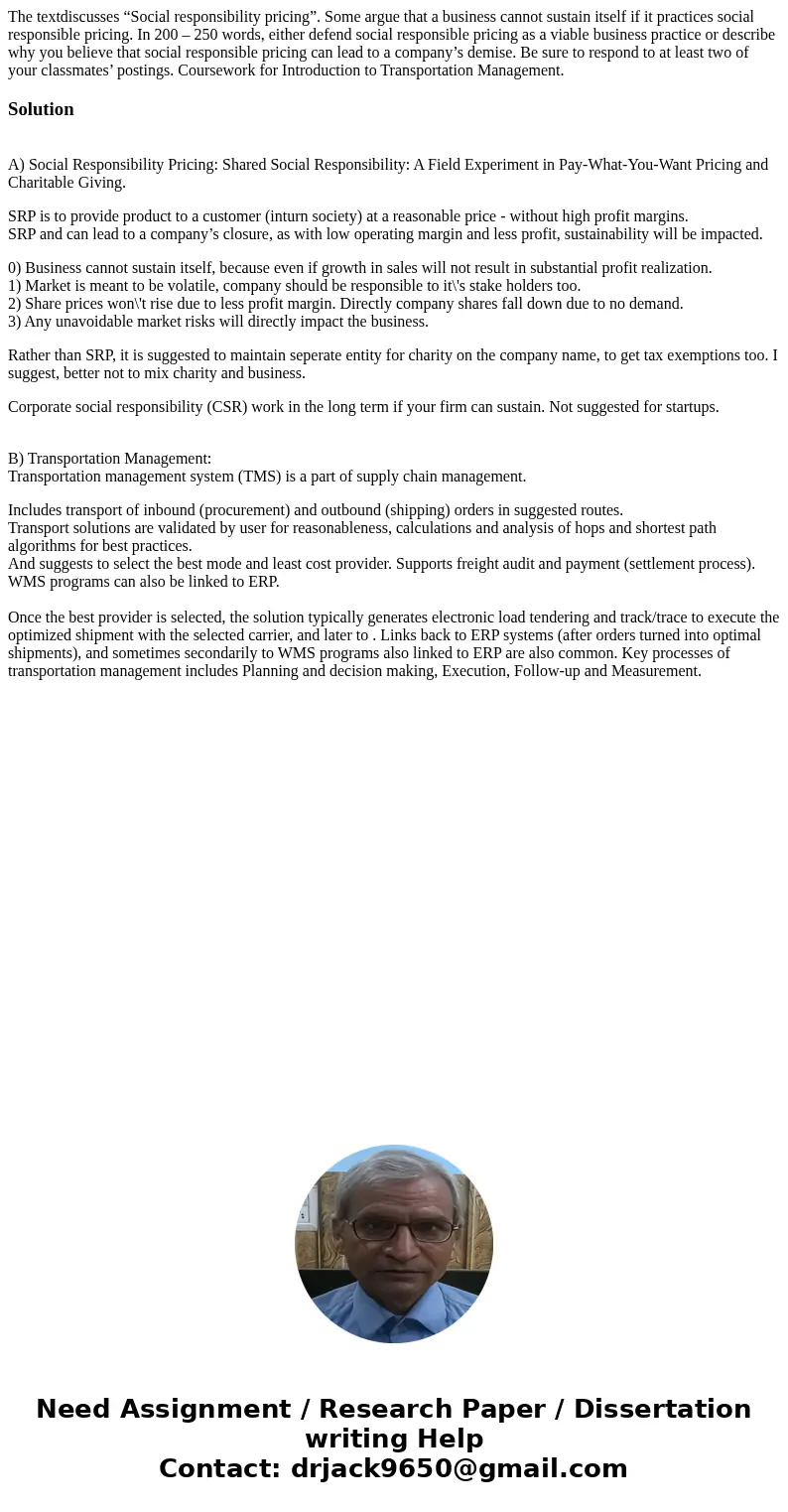The textdiscusses Social responsibility pricing Some argue t
The textdiscusses “Social responsibility pricing”. Some argue that a business cannot sustain itself if it practices social responsible pricing. In 200 – 250 words, either defend social responsible pricing as a viable business practice or describe why you believe that social responsible pricing can lead to a company’s demise. Be sure to respond to at least two of your classmates’ postings. Coursework for Introduction to Transportation Management.
Solution
A) Social Responsibility Pricing: Shared Social Responsibility: A Field Experiment in Pay-What-You-Want Pricing and Charitable Giving.
SRP is to provide product to a customer (inturn society) at a reasonable price - without high profit margins.
SRP and can lead to a company’s closure, as with low operating margin and less profit, sustainability will be impacted.
0) Business cannot sustain itself, because even if growth in sales will not result in substantial profit realization.
1) Market is meant to be volatile, company should be responsible to it\'s stake holders too.
2) Share prices won\'t rise due to less profit margin. Directly company shares fall down due to no demand.
3) Any unavoidable market risks will directly impact the business.
Rather than SRP, it is suggested to maintain seperate entity for charity on the company name, to get tax exemptions too. I suggest, better not to mix charity and business.
Corporate social responsibility (CSR) work in the long term if your firm can sustain. Not suggested for startups.
B) Transportation Management:
Transportation management system (TMS) is a part of supply chain management.
Includes transport of inbound (procurement) and outbound (shipping) orders in suggested routes.
Transport solutions are validated by user for reasonableness, calculations and analysis of hops and shortest path algorithms for best practices.
And suggests to select the best mode and least cost provider. Supports freight audit and payment (settlement process).
WMS programs can also be linked to ERP.
Once the best provider is selected, the solution typically generates electronic load tendering and track/trace to execute the optimized shipment with the selected carrier, and later to . Links back to ERP systems (after orders turned into optimal shipments), and sometimes secondarily to WMS programs also linked to ERP are also common. Key processes of transportation management includes Planning and decision making, Execution, Follow-up and Measurement.

 Homework Sourse
Homework Sourse